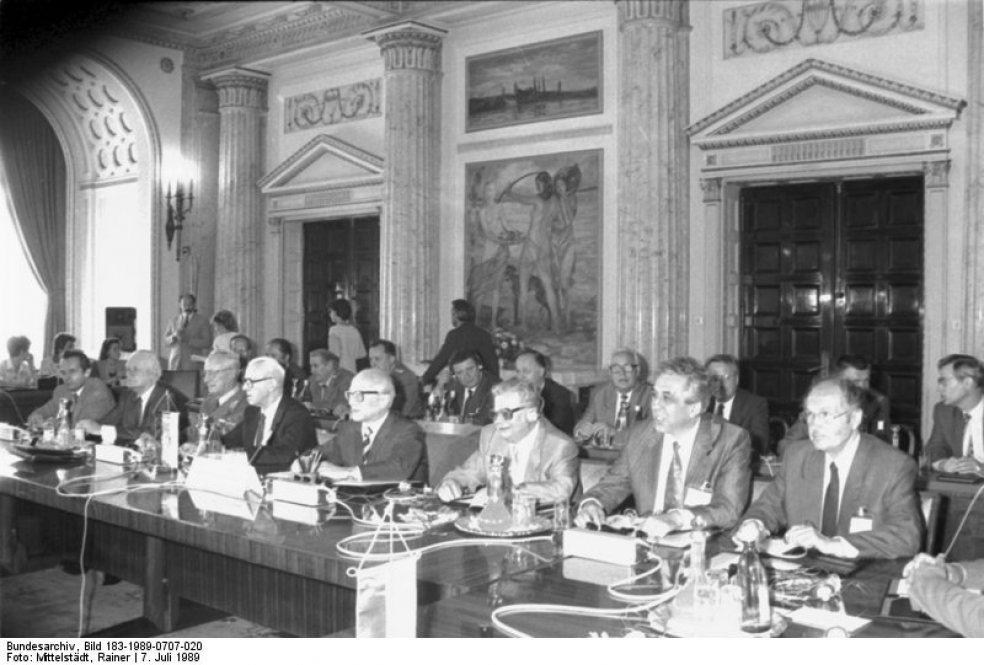"The Wall … will still be standing in fifty and even a hundred years' time": that's what Erich Honecker is still saying at the end of January 1989. And the GDR does seem stable to most people at the time, even though the dilapidated condition of industrial plants, the old parts of cities and the roads, as well as the air and water pollution, all herald the imminent economic disaster. more
Homepage
>
Chronicle


